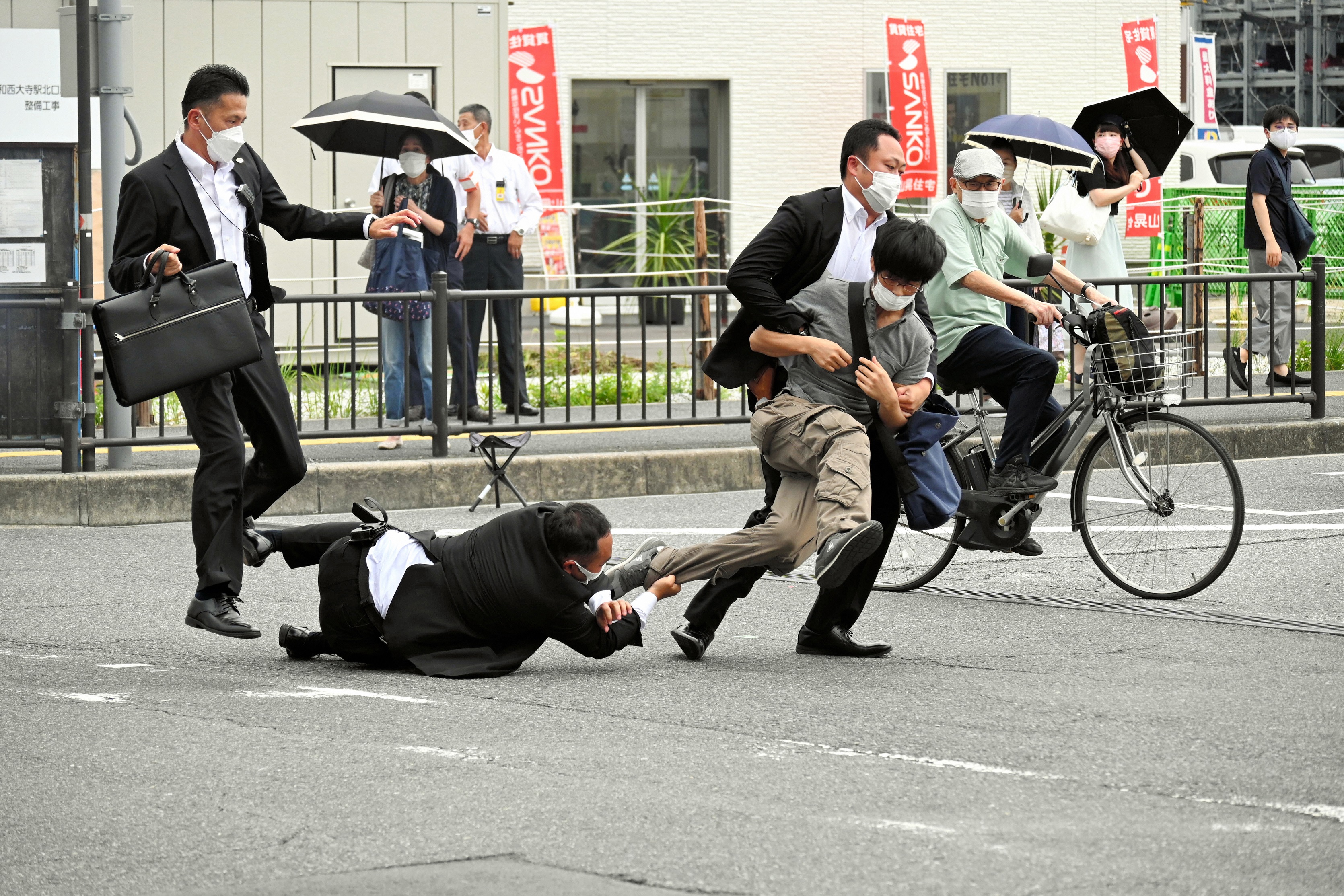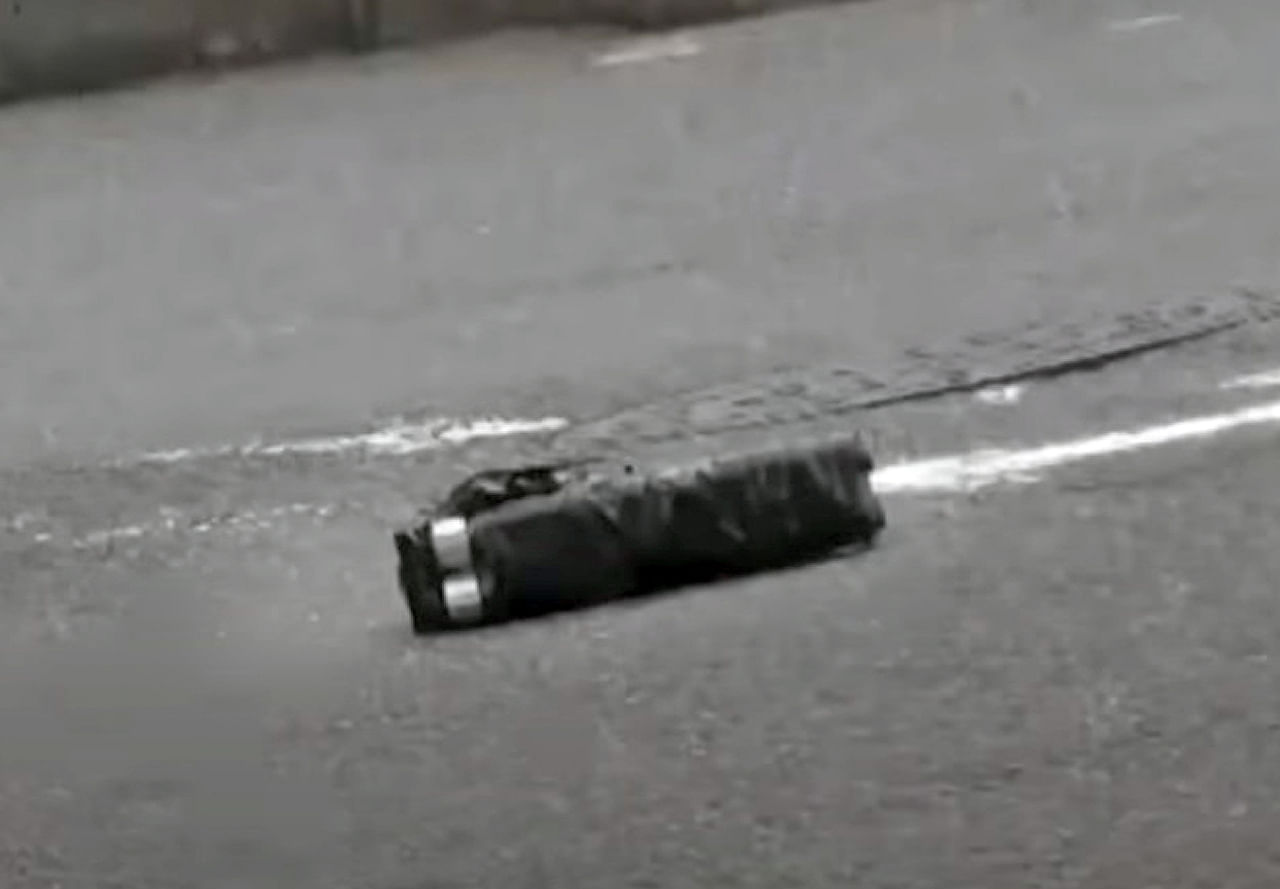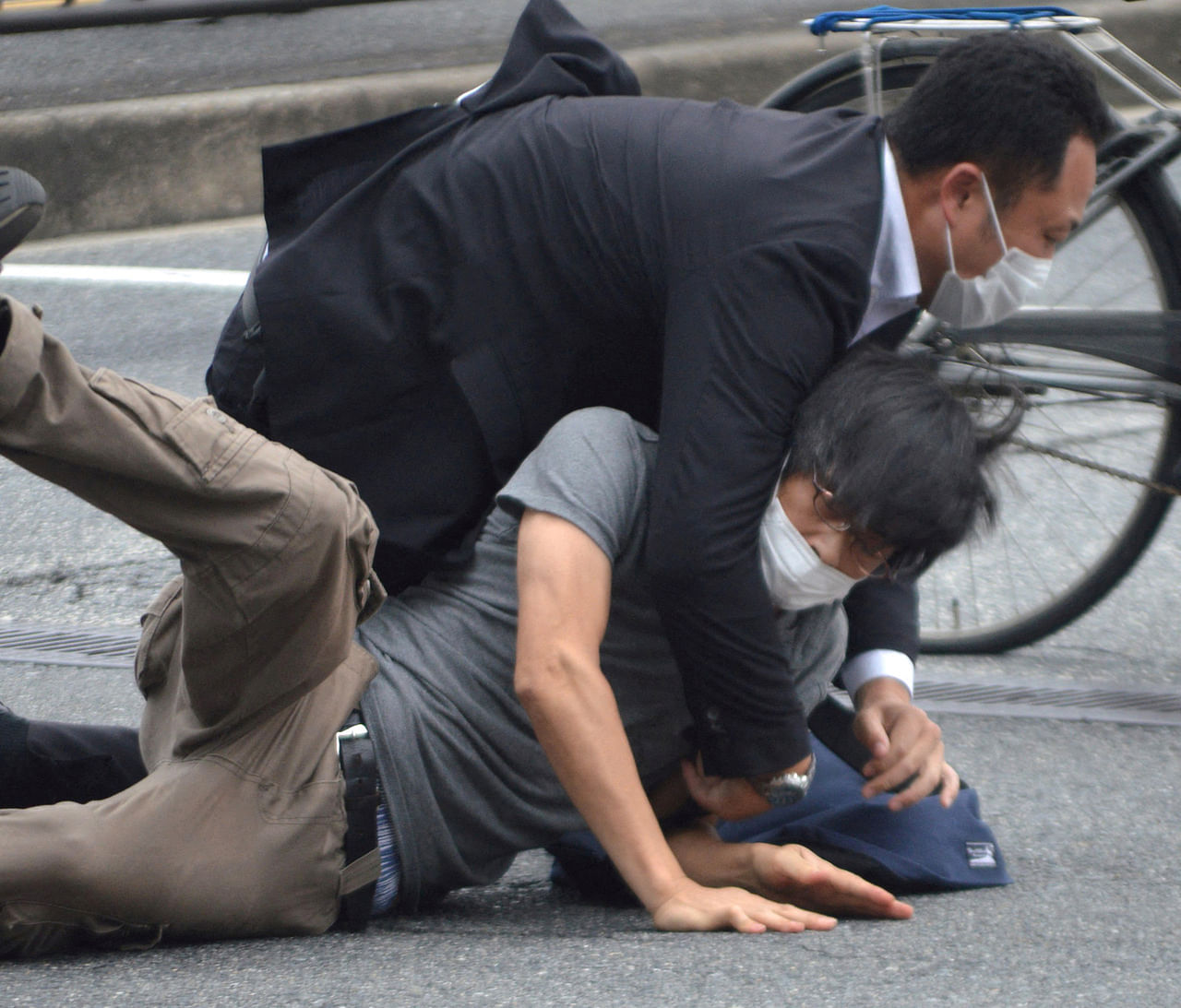Assassination of Shinzo Abe raises questions about security for VIPs in Japan
Sign up now: Get insights on Asia's fast-moving developments

Security police tackle a suspect thought to have shot former prime minister Shinzo Abe outside Yamato-Saidaiji Station, in Nara, Japan.
PHOTO: EPA-EFE
Follow topic:
TOKYO (REUTERS) - The fatal shooting of former Japanese premier Shinzo Abe from close range at a political rally on Friday (July 8) has raised questions about protection for high-profile figures in a country where political violence and gun crimes are extremely rare.
Dignitaries in Japan often travel with modest security details focused mainly on direct physical threats rather than being protected by the heavily-armed personnel braced for firearms attacks seen in places like the United States.
Abe, 67, was campaigning in the western city of Nara for Liberal Democratic Party (LDP) candidates ahead of a Sunday election when he was shot, with Nippon TV saying the assailant was about 3m away.
A 41-year-old man was detained at the scene and police said the suspect had used a homemade gun. Police said other guns and explosives were found at the suspect's home and that he had admitted to carrying out the attack.
Officials from the Nara prefectoral police department told reporters that the request for security at the event was "sudden" and that the department would look into whether security was sufficient and take appropriate action.
Nippon Television quoted Nara police as saying Abe was protected at Friday's rally by one armed specialised police officer and some other local officers. Nara police declined to say how many police officers were handling Abe's security.
When he was shot Abe was standing at an intersection outside a train station, speaking to a crowd of hundreds as buses and vans passed behind his exposed back on the road where the assailant appeared.
Several commentators said security around the former premier should have been stronger.
"Anyone could have hit him from that distance," Masazumi Nakajima, a former Japanese police detective, told Japan's TBS television. "I think that security was a little too weak."
"The person needs to be covered from all directions," Koichi Ito, a VIP security specialist, told national broadcaster NHK. "If this kind of thing isn't carried out 100 per cent, it's no good."
Japanese officials, including former prime ministers, are protected by a special branch of the Tokyo police. The armed plainclothes officers known as SPs - or Security Police - go through a rigorous screening, including expertise in hand-to-hand combat. They typically stay close to the politician they are protecting to safeguard against direct physical threats.
There were just 10 firearm-related incidents in Japan last year, only one of them fatal, according to the National Police Agency.
Abe's assassination was the first of a sitting or former Japanese premier since the 1930s during the days of Japan's pre-war militarism.
Former prime ministers Saito Makoto and Takahashi Korekiyo were assassinated on the same day in 1936, while then-Prime Minister Tsuyoshi Inukai was assassinated in 1932.
'Intimate events'
Paul Nadeau, who has been on campaign events with Abe in the past, said stump speeches like Friday's are "almost intimate events".
"The public is close by, they're usually filling a town square in front of the train station," said Nadeau, who previously worked for an LDP official and is now an adjunct professor at Temple University of Japan in Tokyo.
"You never got any feeling of insecurity or danger or anything like that."
Iwao Horii, an LDP member who was standing next to Abe when he was shot, said preparations for the event were not unusual with about 15 party staff tasked with crowd control and security handled by the local police.
All major parties announced suspensions of election campaign activities after the shooting.
Several recent campaign events attended by Abe, who was Japan's longest serving prime minister and one of the country's most influential political figures, had drawn large crowds.
One ruling party source told Reuters on condition of anonymity that despite Abe's high profile, the level of security he was provided had likely dropped since he left office in 2020.
Nara police declined to comment on whether a former prime minister would be given less protection than a serving lawmaker, citing security reasons.
Tight gun control

Japan has very tight gun control laws.
The suspected gunman shot at Abe with a device that had a pistol grip and two pipes covered in black electrical tape, according to photos and video images of the incident.
A man in a black suit wrestled the suspect to the ground after the shooting, while several others - one carrying a briefcase - rushed to assist, photos showed.

Grant Newsham, a retired US Marine officer and former diplomat at the Japan Forum for Strategic Studies, said he would expect more caution and somewhat tighter protection of senior politicians in Japan following the assassination.
"Questions will be being asked about security. Clearly security would have been far tighter for, say, (Prime Minister Fumio) Kishida," added Robert Ward, a London-based senior fellow for Japanese Security Studies at the International Institute for Strategic Studies.
"But proximity to voters is a feature of Japanese campaigning. I've been at campaign rallies and the public is close. Perhaps this will change. If so, it would be a shame."

